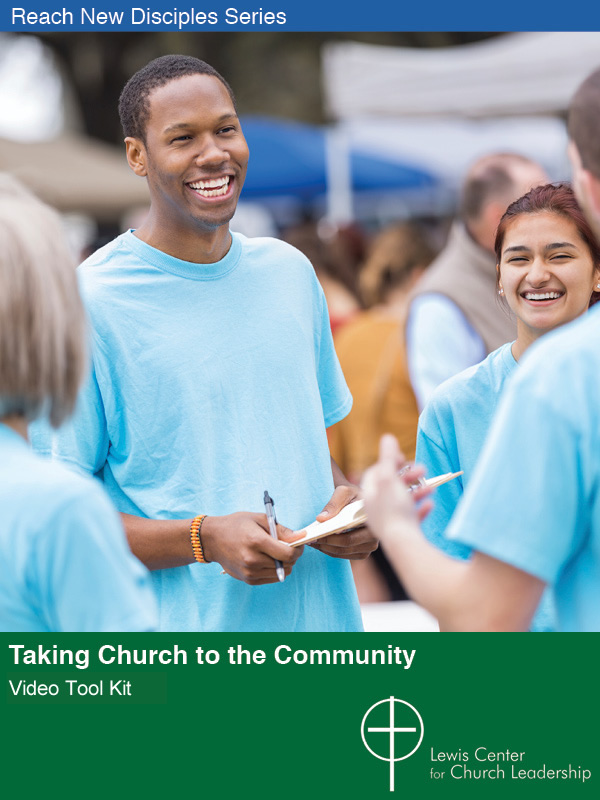Every congregation begins as an outwardly-focused group of believers, intent on reaching out to those with whom they want to share the Gospel message. Without being such a mission-focused group, they would not have become a congregation at all. The temptation for a church in times of change, however, is to turn inward and become more of a members-focused organization, thus turning away from its earlier identity as an outwardly focused, mission-directed church. Thriving congregations focus outwardly on their contexts while declining congregations increasingly turn their primary attention inward toward member preferences rather than what might be needed to make their church more welcoming for those who need its message and ministry. Nowhere is this more evident than in worship.
The goal of worship planning should always be to develop worship practices that bring together historical, theological, and pastoral considerations in a way that strengthens current disciples and reaches those, not yet in the church, who most need the power of God’s love in Christ.
I remember on some occasions going to a church as the new pastor and being asked, “Pastor, what is your order of worship?” There was an assumption that I had a distinctive order of worship and that the church’s worship would now reflect that order. Other times, upon my arrival as the new pastor, someone would give me a recent bulletin and say, “Pastor, this is our order of worship,” with the clear expectation that nothing would change.
These two illustrations represent two ends of a continuum on which many worship debates play out in congregations. On the one hand, the pastor’s values, ideas, and knowledge need to be reflected in the congregation’s worship practice. On the other hand, the values and traditions of the congregation need to be honored.
But there is often a missing participant in these discussions — the person whom your church was established to reach and the person not yet there. Some churches address this challenge by having someone join the worship planning team for the sole purpose of keeping the planning sensitive to those who will be present for the first time. Others are careful to involve at least some persons in the planning who are themselves relatively new to the church.
Reverse Mentoring for Worship
It is not easy for those missing people in our communities to influence our planning — even when we have the best intentions. The congregation is often not a good source for understanding those outside the church. In many cases, churches have become far different from the culture around them and are unrepresentative of those they are seeking to reach. Church people are more likely to be older, married or formerly married, and better off economically, for example, than those outside the church.
Furthermore, the most active church leaders are the least equipped to see the church as those outside do. The longer you have been around, the harder it is to experience your church as an outsider. So if you have been in your church for a while, even if only a matter of weeks, then it is increasingly difficult for you to have an outsider’s perspective.
So, what can we do? One approach is to acknowledge our limits and convert them into an advantage. Think about how you can engage people on the periphery of your church or outside your church who would be willing to identify first impressions and clues to help you see things less from an insider’s perspective. Some can even invite friends who do not attend your church to come and “help us learn” more about ourselves from the perspective of the newcomer.
You might also consider practicing what some call “reverse mentoring.” In traditional mentoring, the mentor is normally older and more experienced than the person being mentored. In reverse mentoring, those who tend to be older and more experienced ask for help from those younger and with less experience. Here is how it might work for worship planning.
Over the course of the next year, your worship committee or worship planning team could invite a series of small groups of people to meet with you so you can learn from them. Especially invite those more represented in the broader community than in your congregation. For most churches this will include younger people, both youth and young adults, though probably not in the same sessions. These “focus group” type sessions can include at various times those who recently started attending or those who are different in some way from the majority of the congregation.
Using a few open-ended questions, you will learn much about how others see your church’s worship. Ask such things as:
- What means the most to you about worship at this church?
- How is our worship similar to or different from that of other churches you have attended?
- What would improve our worship?
- If there is anything about our worship you would never change, what is it?
- If there is anything you could change, what is it?
There must be strict ground rules for your worship group before the sessions begin. As you ask questions of those you have invited, there are only two things that your group will do. You will listen and then say, “Thank you.” You will repeat this process for the entire conversation period. No one will debate, argue, instruct, or explain. Any sign of defensiveness destroys the purpose of the exercise. There will be plenty of time after the session for the planning group to explore how they can be responsive (not reactive) to what they have heard.
The Ultimate Goal
The goal of worship planning should always be to develop worship practices that bring together historical, theological, and pastoral considerations in a way that strengthens current disciples and reaches those, not yet in the church, who most need the power of God’s love in Christ.
Related Resources:
- Be the Welcoming Church Video Tool Kit
- Connect with Your Neighbors Resource
- How Do People See Your Church? by Lovett H. Weems, Jr.







